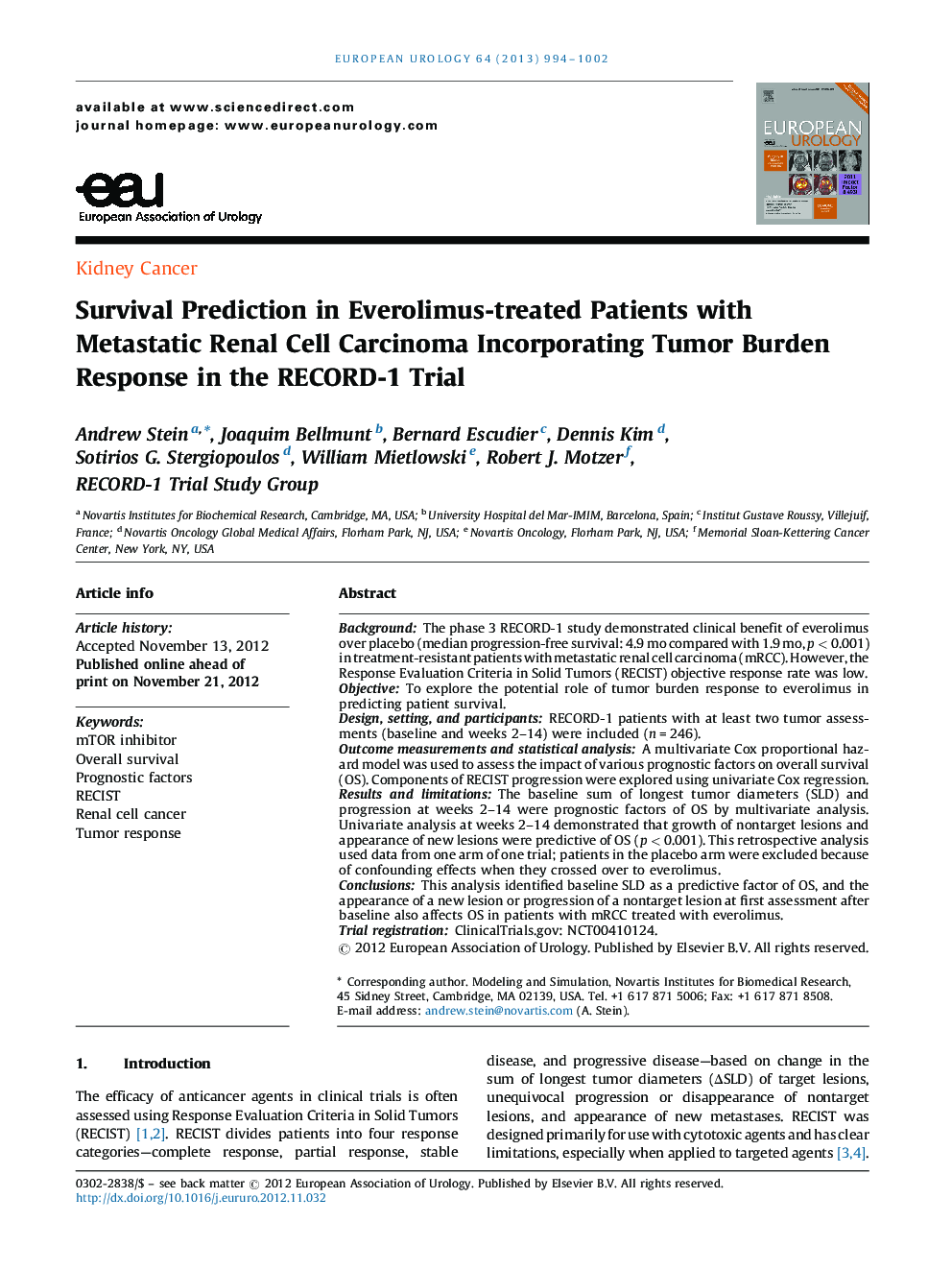| Article ID | Journal | Published Year | Pages | File Type |
|---|---|---|---|---|
| 6177069 | European Urology | 2013 | 9 Pages |
BackgroundThe phase 3 RECORD-1 study demonstrated clinical benefit of everolimus over placebo (median progression-free survival: 4.9 mo compared with 1.9 mo, p < 0.001) in treatment-resistant patients with metastatic renal cell carcinoma (mRCC). However, the Response Evaluation Criteria in Solid Tumors (RECIST) objective response rate was low.ObjectiveTo explore the potential role of tumor burden response to everolimus in predicting patient survival.Design, setting, and participantsRECORD-1 patients with at least two tumor assessments (baseline and weeks 2-14) were included (n = 246).Outcome measurements and statistical analysisA multivariate Cox proportional hazard model was used to assess the impact of various prognostic factors on overall survival (OS). Components of RECIST progression were explored using univariate Cox regression.Results and limitationsThe baseline sum of longest tumor diameters (SLD) and progression at weeks 2-14 were prognostic factors of OS by multivariate analysis. Univariate analysis at weeks 2-14 demonstrated that growth of nontarget lesions and appearance of new lesions were predictive of OS (p < 0.001). This retrospective analysis used data from one arm of one trial; patients in the placebo arm were excluded because of confounding effects when they crossed over to everolimus.ConclusionsThis analysis identified baseline SLD as a predictive factor of OS, and the appearance of a new lesion or progression of a nontarget lesion at first assessment after baseline also affects OS in patients with mRCC treated with everolimus.Trial registrationClinicalTrials.gov: NCT00410124.
